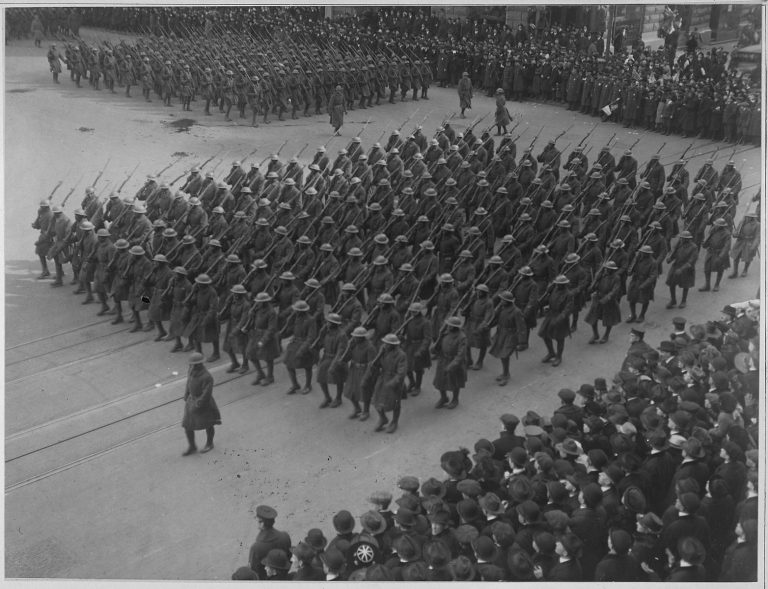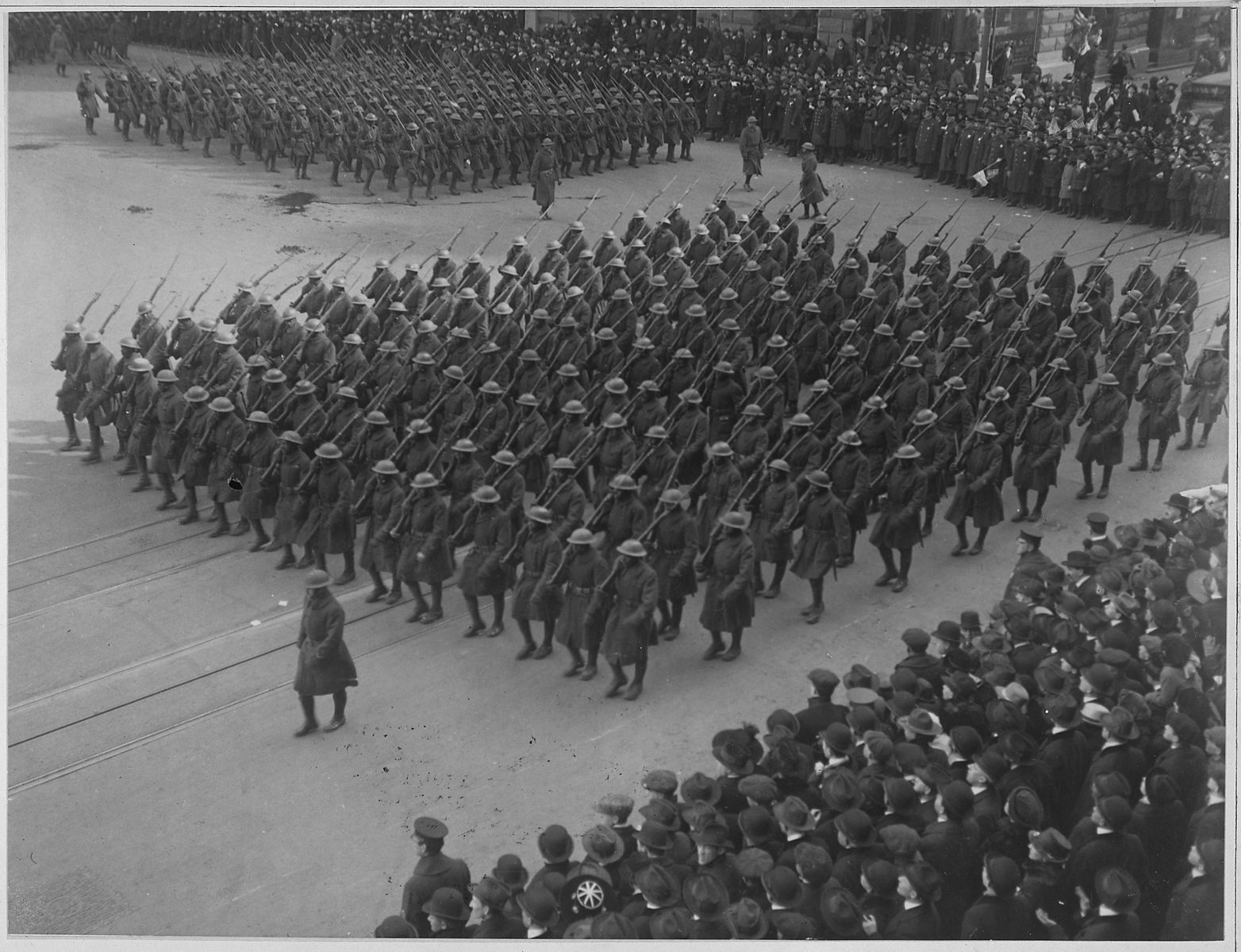[ad_1]

History is often written by the victors. But even then, some stories remain untold. When we talk about World War I, rarely is there meaningful conversation around the contributions of African-American soldiers. This paints a false narrative since we know our efforts contributed significantly to war victories.
Though under the 1917 Selective Draft, nearly 400,000 African-American soldiers were drafted, only 1/10th were used as combat troops. While these men were official soldiers in the U.S. Army, it was intended for them to remain on the sidelines and assume non-combat or labor roles.
The 369th Infantry of the 93rd Division was among the first American forces deployed in Europe during the Great War. Notoriously nicknamed the “Harlem Hellfighters,” this African-American troop made a name for itself by being relentless in battle and never giving up an inch of ground.
Their German enemies deemed them “Hell Fighters” for preventing the capture of any of their men. Likewise, French allies called them “Men of Bronze” for remaining on the battlefield for a full 191 days – more than any other American unit.
In war, it is an honor to be given nicknames by enemies and allies as these distinctions signal a nod of respect from other units. Up until the “Harlem Hellfighters” emerged, African-American soldiers were referred to as “Buffalo Soldiers.”
The first “Buffalo Soldiers” originated from the 10th Cavalry Regiment of the United States Army and were given the nickname by Native Americans during the Indian Wars. These soldiers inspired Bob Marley’s song by the same name, as the soldiers represented Black men who exemplified courage, integrity, and bravery in a field predominated by whites.
Despite their bravery, loyalty and camaraderie, the Harlem Hellfighters faced racial discrimination on the frontlines. Since many white American soldiers refused to fight alongside them, the Hellfighters were assigned to the French Army where racial relations were not as overly strained.
However, once in Europe, the Hellfighters became famous not only for their fervor on the battlefield but also for their regimental jazz band.
//pagead2.googlesyndication.com/pagead/js/adsbygoogle.js
Neither the French nor British had any conception of jazz music, yet the band gained instant popularity and boosted the morale of fellow soldiers. Led by James Reese Europe, the band has gone down in history as one of the most influential regimental bands of all-time.
Given the racial and social climate in America during the Great War, the contributions of the Harlem Hellfighters are laudable. Their success in battle helped influence white public opinion concerning the value of African-American soldiers in the armed forces.
However, these soldiers were still relegated to the sidelines, forced to wear recycled clothes from the Civil War, required to sleep outside of the standard barracks, and even trained in separate facilities. Though official members of the U.S. Army, African-Americans were still not able to become members of the Marines, Navy, or Coast Guard at the time.
The Hellfighters fought for freedom abroad, but were required to don a new suit of armor once they returned “home.” Faced with race riots and lynchings as race relations between Blacks and whites grew more strained, the Hellfighters navigated defending a country that still did not accept them as whole.
For all of these reasons, the Hellfighters represent a win for the integrity and dignity of African-American soldiers across generations. Moreover, they signify the humanization of the Black body so often depicted and used as merely a tool for the advancement of white efforts.
In 2014, Max Brooks published a graphic novel entitled The Harlem Hellfighters, which has received critical acclaim for highlighting the bravery and bravado of the 369th Infantry. Will Smith is also set to produce a film based on the book in conjunction with Sony Pictures.
These are the stories that cannot remain untold. This is American History.
//pagead2.googlesyndication.com/pagead/js/adsbygoogle.js
The post Kicking Ass and Taking Names: The Legacy of the “Harlem Hellfighters” appeared first on PushBlack.
[ad_2]
Source link

